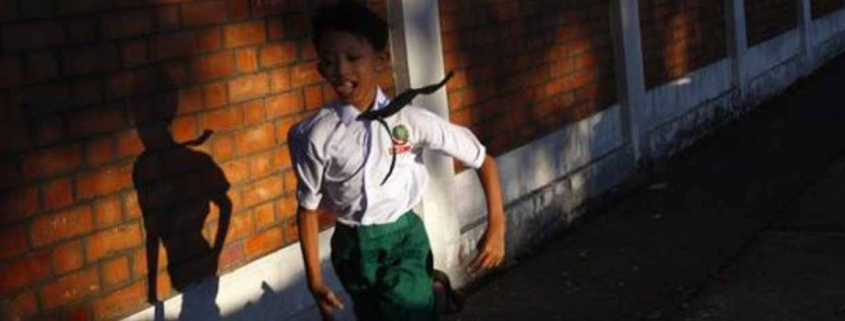Myanmar’s New Children’s Law a Step Forward
After years of discussion and debate, Myanmar has finally enacted a law to protect the rights of children.
Consistent with the United Nations Convention on the Rights of the Child, which Myanmar has ratified, the law defines a child as anyone younger than 18 and provides all children born in Myanmar have the right to birth registration.
This is important, but other shortcomings need to be addressed. Myanmar should revise the law to provide all children with the right to a nationality and not be stateless – therefore, full citizenship rights. The children of parents Myanmar does not recognize as citizens, notably Rohingya Muslims, or who face discriminatory application of the law, such as Kaman Muslims or women trafficked to China, are denied Myanmar citizenship. Without citizenship, children have difficulty entering school, obtaining health care, and traveling inside the country as well as abroad. Those born in Myanmar often will be stateless, which international law tries to prevent.
The child rights law, passed in July, appropriately sets 18 as the minimum age of marriage, regardless of gender. Child marriage is hard to track in Myanmar, but the organization Girls Not Brides estimates 16 percent of girls are married before they turn 18. Now Myanmar should create a national action plan to end all child marriage, aligning implementation of the law to Target 5.3 of the 2030 UN Sustainable Development Goals. Relevant ministries should work together and develop a comprehensive plan containing measurable benchmarks and clear timelines.
The child rights law now sets the minimum age of employment at 14 years and forbids children from doing dangerous forms of labor. But the Ministry of Labor, Immigration and Population still needs to finalize a hazardous jobs list. The International Labour Organization estimates a million children are employed in underage and often dangerous work in Myanmar. A draft list has been circulating for a considerable time, and should be finalized in consultation with unions, civil society groups, child rights advocates, and employers.
Myanmar law still has a long way to go in its treatment of children who commit crimes. The new law raises the age of criminal liability from the ridiculously low 7 years to 10 years. Even with the change, Myanmar is one of the lowest age of criminal responsibility for children of any country in the Association of Southeast Asian Nations (ASEAN). The UN Committee on the Rights of the Child has called on governments to set the minimum age of criminal responsibility at 12 or higher.
Myanmar’s child rights law has filled an important gap in the law but reforms still need to be enacted and implemented.



